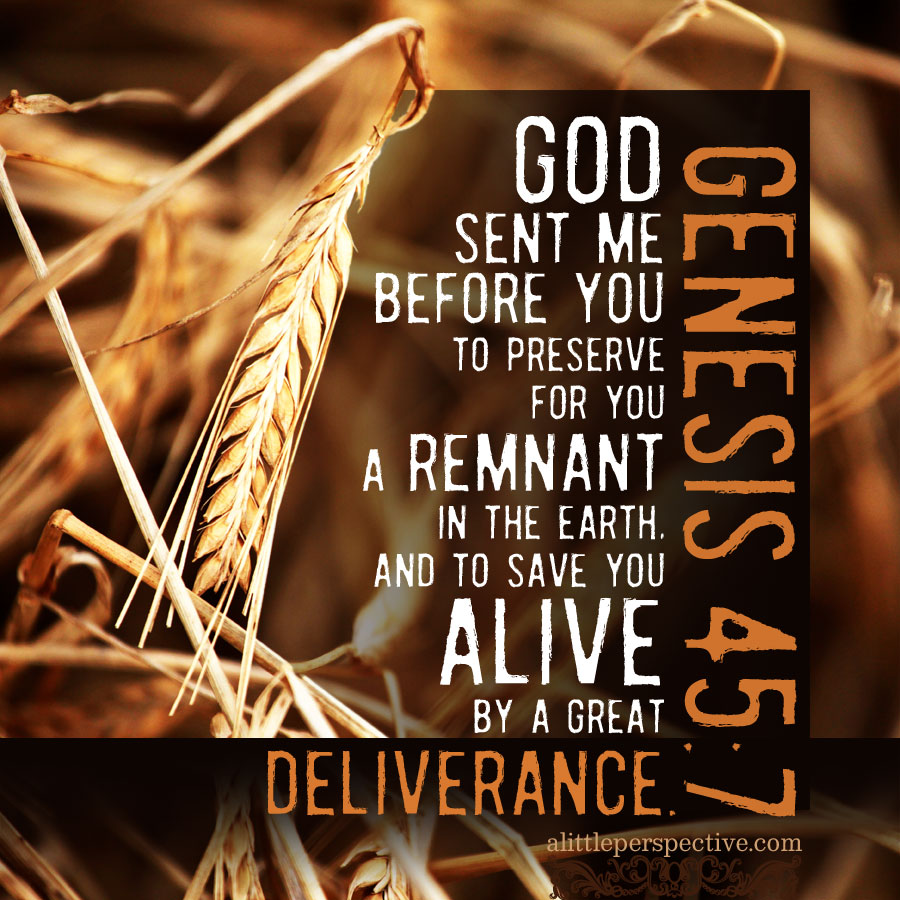Read Genesis 45 and 46 at Bible Gateway.
The Hebrew paragraph divisions for our chapters today are:
Gen 44:18-46:7 {s} Joseph revealed to his brothers and father
Gen 46:8-27 {s} Seventy persons of Israel went down to Egypt
Gen 46:28-47:27 {p} Joseph the provider
If we look at the weak paragraph from Gen 44:18-46:7, to find its overarching theme, we note that it begins with Judah’s speech to Joseph (Gen 44:18-34). The end of this speech might be a good place for a paragraph division according to human logic. But the paragraph, according to God, does not end there.
Joseph is so overcome by Judah’s transformation that he sends all his Egyptian servants away, and reveals himself to his brothers (Gen 45:1-15)! The end of the dramatic revelation might be a good place for a paragraph division according to human logic. But the paragraph, according to God, does not end there.
Pharaoh repeats Joseph’s advice, and commands Joseph to send for all his father’s household to come down to Egypt and dwell there. The brothers return to Israel, God meets with Israel and confirms His covenant to him, and he goes down to Egypt with all his household (Gen 45:16-46:7). Then the paragraph ends – before the list of all the sons and grandsons who go down with him to Egypt! Not the logical place for a division according to human logic.
God is setting the list of Jacob’s sons and grandsons, who go with him down to Egypt, in its own paragraph for a reason. Notice that the Scripture is careful to count how many sons and grandsons there are, so that we know that Jacob, when he goes down to Egypt, numbers seventy persons (Gen 46:27).
We have seen this number before in Genesis. The list of Noah’s sons and grandsons, who were the heads of families, were seventy persons (Gen 10:1-32), and “out of these the nations were separated on the earth after the flood.” So there were 70 nations (in their founding fathers) who rebelled against God at the Tower of Babel (Gen 11:1-9).
That these two passages of Scripture are connected by the same theme or topic of seventy persons, is another very powerful teaching tool of Scripture, which is employed from Genesis to Revelation, called thematic analysis.
We had seen previously that when all 70 nations rebelled against God at Babel, to disobey His commandment and deny Him as Creator and God, that the very next thing that happened in Scripture was the calling of Abram to come out from his country (his nation) and from his father’s house, and be separated to God in a place that He would show him (Gen 12:1-3). God then promised to make a nation of him, a nation which would obey His commandments and acknowledge Him as Creator and God (Gen 18:17-19). Now we see that that one man, Abram, through his grandson Jacob, had become 70 persons, just as the one man, Noah, had become 70 persons after the Flood.
If we fast forward in our Bible to Rev 7, we see that Israel, through her 12 tribes (from the 12 sons of Jacob) are marked for God. Then the next thing we see, is every family, every tongue, every tribe, and every nation (a reference to Babel) before the throne of God, worshiping Him (the heading in my Bible says, “A multitude from the great tribulation.” The headings aren’t inspired as the text is. This heading makes numerous assumptions about prophecy which may not be true, and I prefer to ignore it). Since Scripture is highlighting the 70 of Jacob in today’s reading, we conclude that these 70 are significantly connected to the 70 nations, to undo what Satan had done at Babel. We have come to our conclusion through thematic analysis! We noted the similar theme in three passages of Scripture (Gen 10-12, today’s passage, and Rev 7) and allowed the Scripture to teach us the significance of their common themes.
Back to our weak paragraph. If we outline it where we would have made the paragraph divisions, we find:
1. Gen 44:18-34: Judah pleads to take Benjamin’s place;
2. Gen 45:1-15: Joseph reveals himself to his brothers;
3. Gen 45:16-46:7: Jacob goes down to Egypt to live under the provision and blessing of Joseph.
We saw yesterday that Judah prophesied of Messiah’s 1st coming, where He offered Himself in our place, and died a substitutionary death on the cross out of love for His Father. Now, Joseph reveals himself to his brothers. They do not recognize him until he makes himself known. They were separated by many years and Joseph was dressed up like an Egyptian nobleman, after all. Isn’t this what Jesus has been doing for the past 2000 years: revealing Himself to His brethren? We do not find Him, but He finds us and makes Himself known to us. The third event of this paragraph is also prophetic, in that when Jesus comes in His 2nd coming, it will be as a ruler and not as a servant. Jacob will live under His reign, and life will be good with nothing to hurt in all the place of His authority.
For further reading:
Joseph in Egypt, part four, part five, part six (Assoc. for Biblical Research)
Coins of Joseph (Answers in Genesis)
Famine in Egypt (CreationWiki)
Thematic Analysis (pdf – Restoration of Torah)

















Leave a Reply